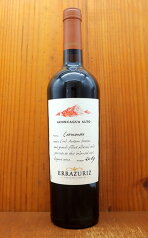(n) (1) free city (of Germany)
(2) commune (of medieval Europe)
(n,adj-no) major city
(exp) you can get used to living anywhere
(n) commercial city
(n) consumer city
(n) fortified city
walled city
(n) provincial city
provincial town
suburban city
regional towns and cities
(n) weather conditions
(n) rural or garden city
(ik) (n) dance performance held in April by geisha and maiko in Kyoto's Gion district
(n) depending on the (one's) situation (circumstances)
at one's pleasure
(n) town gas
(P)
(n) city bank
metropolitan bank
(n) town planning
(P)
(n) urban transport
urban transit
(n) city-state
(n) urban regeneration
(n) urban legend
(n) miyako-bushi scale (characteristic Japanese hemitonic pentatonic scale: mi, fa, la, ti, do)
(n) administrative divisions of Japan: Tokyo-to, Hokkai-do, Osaka-fu, Kyoto-fu and remaining prefectures
(P)
(n) Tokyo meeting hall
(n) metropolitan high school
(n) government of Tokyo Metropolis
(n) six sects of Buddhism brought to Japan during the Nara period (Sanlun, Satyasiddhi, Faxiang, Abhidharmakosha, Vinaya, and Huayan)
(n) fortified city
(n) opportunism
double standards
timeserving
expediency
(n) Kyoto Protocol
(n) opportunism
double standards
timeserving
expediency
(exp) to move (an object or person) to the city
(exp) convenient



![OPI オーピーアイ ベースコート 15ml NTT10 国内正規品 O・P・I ベース・トップコート [0015/NTT10] メール便無料[A][TG100] ナチュラルネイル ベースコート マニキュア 保護](https://thumbnail.image.rakuten.co.jp/@0_mall/cosmenana/cabinet/10585/1058502015.jpg?_ex=238x238)